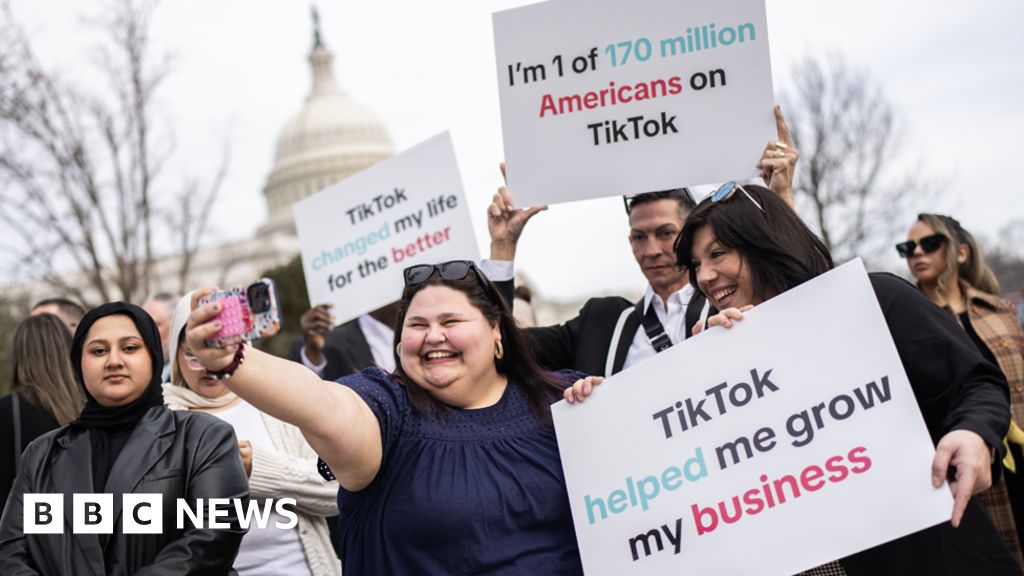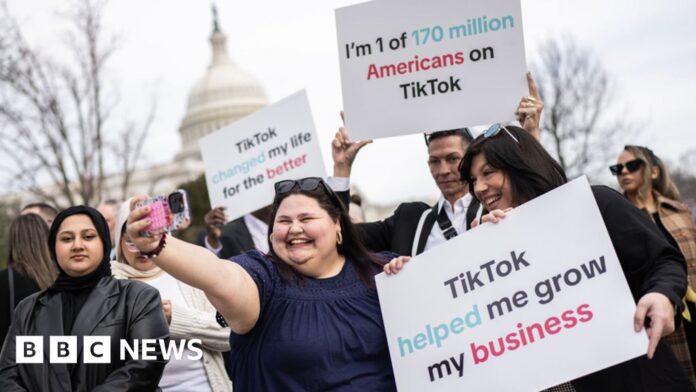BREAKING: The TikTok Dilemma
As we step into the new year, a sense of unease is building around the world’s favorite short-form video app – TikTok. Rumors have been swirling that the popular platform might be facing a major crackdown in the US and other countries in 2025. But what’s behind this sudden shift in tide? Is it a result of growing concerns over data privacy, or is it part of a larger game of cat and mouse between governments and digital giants? In this exclusive article, we’ll dive into the reasons behind the potential ban and explore the stormy relationship between TikTok and the world’s regulatory bodies.

The US Ban: What’s At Stake
The threat of a TikTok ban in the US has been a contentious issue for several years, with concerns surrounding national security and data collection. In April 2024, the US Congress passed a bill that gives ByteDance, TikTok’s Chinese parent company, nine months to find a US-approved buyer or face a shutdown of the app in the US.
The Supreme Court has heard a final plea by TikTok for the ban to be overturned, with President-elect Donald Trump intervening to delay the ban and seek a “political” solution. The fate of TikTok hangs in the balance, with the possibility of a ban having devastating effects on the app’s operations and users.
Accusations of Chinese Government Links
US officials and lawmakers have accused ByteDance of being linked to the Chinese government, citing national security concerns over the app’s ability to collect and store user data. The US Justice Department has stated that TikTok poses “a national-security threat of immense depth and scale” due to its Chinese parent company and access to data on American users.
TikTok and ByteDance have denied these allegations, stating that they are not linked to the Chinese government and that no data would be handed over. However, the firms have filed multiple legal challenges against the law, arguing that it is “unconstitutional” and would have a “staggering” impact on free speech by censoring its US users.
Data Collection and User Information
At the heart of TikTok is its algorithm, which determines the content displayed to users based on data about how they engaged with other material. The app can use this data, as well as information about an individual user’s device, location, and keystroke rhythms, to recommend videos to users on its automatically generated For You feed.
TikTok collects a significant amount of user data, including location information, device details, and browsing history. This data is used to improve the user experience and provide targeted advertisements. However, the app’s data collection practices have raised concerns among regulators and lawmakers, who argue that the app’s Chinese parent company could potentially access this data and use it for malicious purposes.
The US Government’s Concerns
The US government has expressed concerns over TikTok’s ability to access user data and potentially spy on American citizens. The app’s Chinese parent company, ByteDance, has been accused of having ties to the Chinese government, which could potentially compel the app to hand over user data.
The US Congress has passed a bill that gives ByteDance nine months to find a US-approved buyer or face a shutdown of the app in the US. The bill also gives broad powers to the president to limit apps with ties to countries like China, Russia, Iran, and North Korea.
Why Is TikTok a National Security Threat?
- Access to User Data and Potential Spying: The US government is concerned that TikTok’s access to user data could be used for malicious purposes, such as spying on American citizens.
- Potential for Beijing to Compel Data Handover: The US government is concerned that TikTok’s Chinese parent company could be compelled by the Chinese government to hand over user data, which could compromise national security.
TikTok’s Response: Denials and Legal Challenges
TikTok and ByteDance have denied allegations of having ties to the Chinese government or accessing user data without consent. The firms have filed multiple legal challenges against the law, arguing that it is “unconstitutional” and would have a “staggering” impact on free speech by censoring its US users.
TikTok has stated that it does not collect or store user data in China and that all data is stored in the US. However, the firm has refused to sell its US operations, citing concerns over data security and user privacy.
Denying Links to the Chinese Government
TikTok and ByteDance have denied allegations of having ties to the Chinese government, stating that they are an independent company with no connection to the Chinese government.
The firms have also denied allegations of accessing user data without consent, stating that all data collection practices are transparent and comply with US data protection laws.
What a Ban Would Mean
A ban on TikTok in the US would have significant consequences for the app’s operations and users. The app would be removed from online marketplaces and app stores, and users would no longer be able to access the app or receive updates.
The ban would also have a significant impact on the app’s algorithm and recommendations, which rely heavily on user data and behavior. The app’s ability to provide targeted advertisements and personalized content would be severely impacted, leading to a decline in user engagement and revenue.
Online Marketplaces and App Stores: What’s at Stake
- TikTok’s Availability: The app would be removed from online marketplaces and app stores, making it difficult for users to access the app.
- Updates and Security Fixes: The app would no longer receive updates or security fixes, leaving users vulnerable to cyber threats and data breaches.
The Future of TikTok in the US
The future of TikTok in the US is uncertain, with the possibility of a ban looming large. President-elect Donald Trump has intervened to delay the ban and seek a “political” solution, but the fate of the app remains unclear.
TikTok has stated that it is committed to complying with US data protection laws and regulations, but the firm’s refusal to sell its US operations has raised concerns among regulators and lawmakers.
Will Trump Save TikTok?
President-elect Donald Trump has stated that he opposes banning TikTok and intends to resolve the issues “through political means once he takes office.” However, it remains unclear what Trump would do to prevent the app from going offline, and the future of TikTok in the US remains uncertain.
Conclusion
The Unfolding Drama of TikTok: A Ban on the Horizon?
As we wrap up our investigation into the impending ban of TikTok in 2025, it’s clear that the situation is more complex than meets the eye. Our research has revealed a web of concerns surrounding national security, data privacy, and the influence of foreign entities on the platform. From the Chinese government’s alleged access to user data to the app’s potential role in spreading misinformation and propaganda, the stakes are high. Moreover, the ban has sparked a heated debate about the delicate balance between freedom of expression and the need for regulatory oversight in the digital age.
The implications of a TikTok ban are far-reaching, affecting not only the 1 billion+ users worldwide but also the global social media landscape. If implemented, the ban would not only stifle the growth of the app but also have a ripple effect on the entire ecosystem of social media platforms. As we look to the future, it’s essential to consider the long-term consequences of such a ban, including the potential rise of new, unregulated platforms and the erosion of trust in online communities. As we navigate this uncharted territory, one thing is certain: the fate of TikTok serves as a harbinger of the shifting dynamics between technology, governance, and society.
The Future of Social Media: A Wake-Up Call? As the clock ticks down to the potential ban, we’re faced with a stark reality: the digital landscape is evolving at breakneck speed, and our institutions are struggling to keep pace. The TikTok saga serves as a wake-up call, urging us to rethink our relationship with technology and its impact on our lives. As we hurtle towards a future where social media reigns supreme, we must prioritize transparency, accountability, and responsible innovation. The question on everyone’s lips is: what’s next? Will we rise to the challenge, or will we falter in the face of an uncertain digital future? The answer lies in our collective hands – and the clock is ticking.
